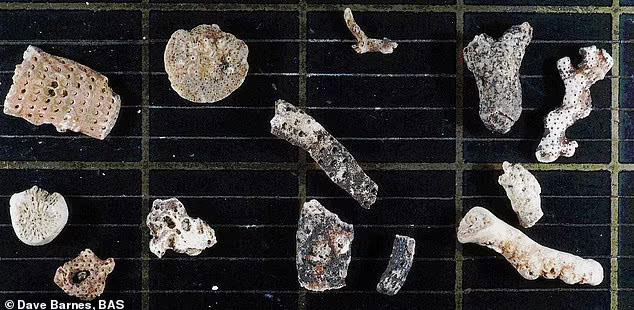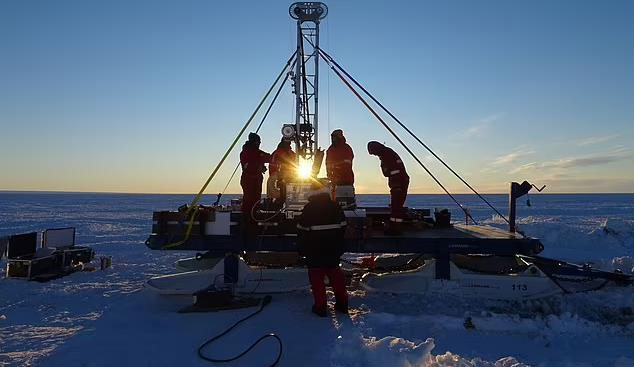Scientists have discovered 77 bizarre species of organisms beneath the Ekström Ice Shelf in Antarctica, a place that seems like a dead zone.
Extremely cold, in perpetual darkness, and with almost no food sources – this is how the research team describes the “oasis of life” they have just found at a depth of 200 meters below the Ekström Ice Shelf, according to the Daily Mail.
“Oasis of life” appears utterly illogical, having preserved a total of 77 species of organisms with forms that cannot be seen anywhere else on Earth.

Bizarre organisms found beneath the Antarctic ice shelf – (Photo: BAS)
The research steps indicate that the “family” of these 77 mysterious species has existed here for approximately 5,800-6,000 years, completely sealed in a dark “ice tomb,” entirely isolated from the world above. The dating results are based on sediment samples they collected.
To reach them, scientists drilled two holes using hot water down to a depth of 200 meters. The drilling site is near the Neumayer III station in the Southeast Weddell Sea, several kilometers from the coast.
The organisms include various species of segmented worms, tentacled marine worms, and bristle worms… along with many creatures that are hard to describe in words, some of which are hermaphroditic and can live up to 45 years. The biodiversity within this millennia-old “ice tomb” is truly shocking.

Scientists drilling for access to the “oasis of life” – (Photo: AWI).
The lead author, Dr. David Barnes from the British Antarctic Survey (BAS), stated that these organisms may survive due to a secret conduit connecting this nearly closed water body with the ocean 3-9 kilometers away, allowing enough algae to sustain the organisms, as many of them are clearly algae-feeders.
However, the mere existence in a place devoid of light and lacking many essential conditions for life is shocking enough.
The discovery of these bizarre organisms existing in seemingly uninhabitable places on Earth is a crucial foundation for the search for extraterrestrial life, indicating that life can still thrive in harsh worlds unlike our own.


















































